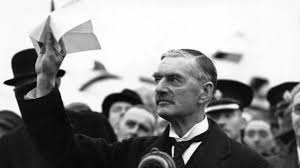 | St Alban’s Episcopal Church Bolivar, Missouri January 26, 2022 “Social Media”The Sunday Collect |
In our wired world, “social media” refers to any means of interaction among people in which they create, and/or exchange information or ideas in virtual communities or networks. Some of us love it; some of us hate it. And a whole lot of people are feeling bombarded by it all. I know that I have come to avoid Zoom meetings, for example, at almost any cost. And yet. I rely on friends I have made on Facebook that I wouldn’t ever have met any other way, including connections I’ve made with other churches and clergy around the world. And people we don’t even know are looking at our Website and following us on Facebook. Social media is a good thing – or can be. Still, it is often annoying. I have to check three different sites just to keep track of Xavier and Elijah’s sports practices and games. Even email has become burdensome for many. Right now the daily letter is posted on the St Alban’s Facebook page, on the St Alban’s Website, and it arrives in your daily email. Different people see it in different places. That’s deliberate. But nobody needs to see it in all three! I am aware that some of you read it on our Facebook page, where you can also find all kinds of other material at the same time. A couple see it on the website, where there are also links to the Episcopal Diocese of West Mo and the National Church. That also works. It’s easier for some to read it there. If you do see it on another platform, and want to eliminate it showing up in your mailbox, just unsubscribe! Don’t forget to check Facebook or the website though – if the weather is iffy! Fourth Sunday after the EpiphanyThe Collect Almighty and everlasting God, you govern all things both in heaven and on earth: Mercifully hear the supplications of your people, and in our time give us your peace; through Jesus Christ our Lord…  Not all “peace” really is, and not every declaration of peace is authentic. On September 30,1938, Hitler threatened to annex part of Czechoslovakia, plunging the world into war, and the British public panicked. It was only a few years after WWI, in which so many thousands of England’s young men had died. England was not prepared for another war – not psychologically or militarily. And so Prime Minister Neville Chamberlain met with Hitler, who signed a non-aggression pact with England.Of course, it required Chamberlain to agree to Hitler’s annexation of the Sudetenland – without any anxiety for the Czechs in that province. People still believed it was possible to appease Hitler’s appetite for land, and if one group of people had to be sacrificed – well, then, that’s what it cost. He returned jubilant – King George praised him. Chamberlain said, famously, “I believe it is peace for our time”. It wasn’t, of course. Hitler never intended it be. Barely six months later Hitler annexed the rest of Czechoslovakia, and in September, 1939, he invaded Poland. WWII had begun. Britain’s Prime Minister addressed the people again, this time solemnly calling for a declaration of war against Germany. In seeking peace, let us be very careful that it is “your peace” – which is the “shalom” the well-being of all – for which we pray, and not just the elimination of current anxieties and difficulties that affect us alone without regard for others. |

No responses yet